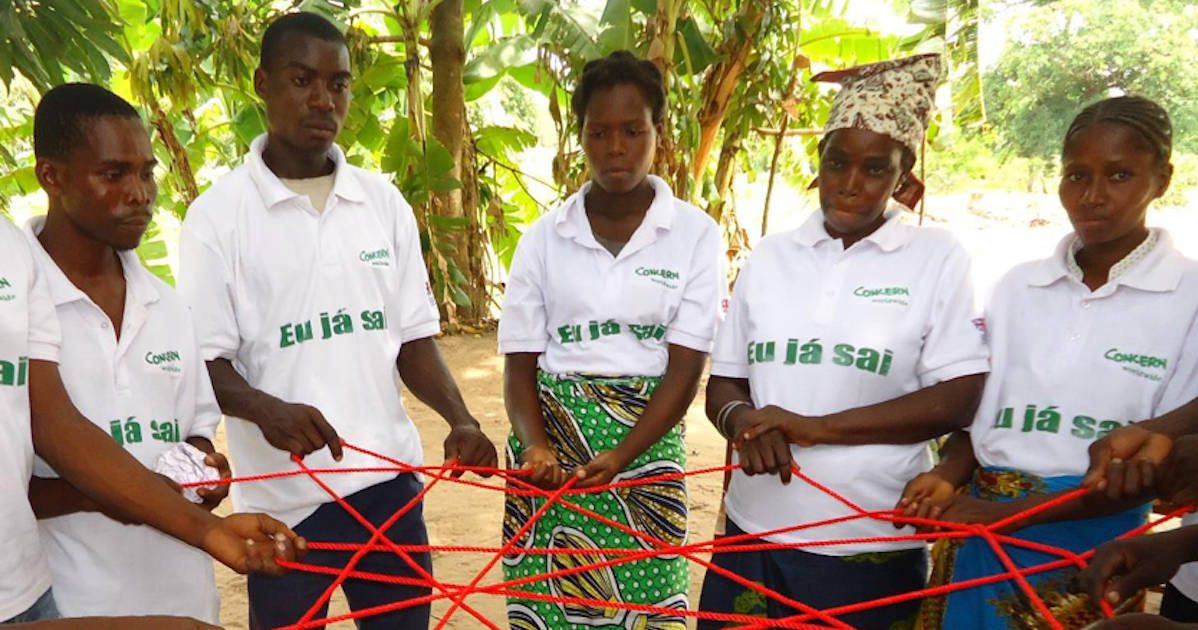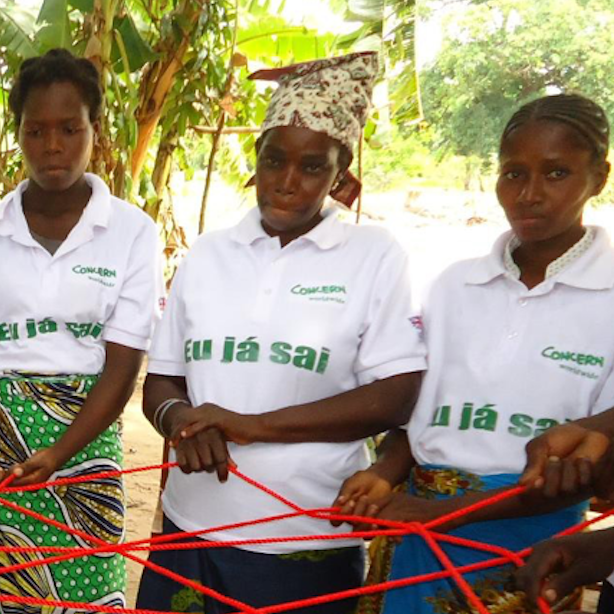
By Micaela Annis, Program Intern at Equimundo
With the goal of improving nutrition in Mozambique, Equimundo partner Concern Worldwide piloted a program based in group dialogue between May 2016 and October 2017. In this program, Concern Worldwide approached the issue of malnutrition among women and children by seeking to collectively address underlying social and cultural understandings of masculinity. In many cases, harmful notions of “what it means to be a man” form a barrier to proper nutrition and overall family well-being. To engage rural men and their female partners, Concern Worldwide and Equimundo developed a program, “Engaging Men in Gender Transformation to Improve Mother-Child Nutrition.” This program aims to facilitate group and community-based dialogue in order to change attitudes around gender equality and, ultimately, improve nutritional outcomes for women and children.
The “Engaging Men” project was piloted in 17 communities across the Zambezia and Manica provinces in Mozambique in July of 2016. In the spring of 2017, an additional eight dialogue clubs were added in response to positive feedback and local interest. A study of the 25 groups finds that the program was highly effective for female and male dialogue club members, as well as for their communities. Both quantitative and qualitative findings reveal notable improvements in attitudes about gender equality, an increase in the equitable division of household labor, and an increase in in female household and financial decision-making.
The dialogue club portion of the project was designed by Equimundo to engage men in a 14-week long curriculum to challenge and change harmful gender norms. In Mozambique, each dialogue club had around 20 members, or ten couples. Each weekly session was about two hours long and focused on a variety of aspects of family and marital life.
A survey of the participants was conducted both before and at the end of the 14 sessions. The survey highlights four key indicators of success: gender attitudes, household decision-making, financial decision-making, and division of labor within the home. Analysis of this data reveals that the dialogue club made a significant impact across these areas.

The Gender Role Attitude Score was measured via numerical scores assigned to 33 questions/responses. For this indicator, 10 is a very positive score (corresponding to attitudes that are highly supportive of gender equality). Through the dialogue clubs, gender role attitudes shifted from slightly negative to slightly positive.
There were more significant changes across the three additional indicators, including the gendered division of labor and general household decision-making. At the end of the program, according to the evaluation, 86 percent of households reported greater sharing of household decision-making around finances, and 69 percent of households reported a more equal division of labor. In both categories, men reported slightly more positive results than women did.
The qualitative interviews also revealed positive changes with regard to violence against women. In fact, program participants who were interviewed reported that all forms of conflict declined dramatically. Women reported feeling that they have more autonomy in the household, while men reported understanding that managing finances should be a shared task, along with household chores and decision-making.
Overall, this program shows promise in promoting healthier and more equitable household and relationships in rural Mozambique.
